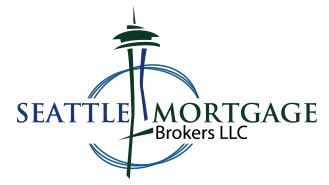We're In A Buyers Market Lower mortgage rates haven’t caused an uptick in demand just…
Good Credit Gets You There
Repairing your bad credit is kind of like weight loss: It will take some time, and there is no quick way to fix a credit score. Out of the ways to improve a credit score, quick-fix efforts have a better chance of backfiring, so beware of any advice that claims to improve your credit score fast. The best advice you can get for rebuilding credit is to manage it responsibly over time. But, if you haven’t done that, then you will need to repair your credit score before you see any improvement. These tips below will help you do that. They have been divided up based on the data that is used when calculating your credit score.
3 Important Things You Can Do Right Now…
Check Your Credit Report – Credit repair begins with checking your credit report. If you haven’t already, request a free copy of your credit report, and make sure to check it for any errors. Your credit report contains data used to calculate your credit score, and it may contain inconsistencies or items that should have been removed, but weren’t. In particular, check to see that there are no late payments incorrectly listed for any of your accounts and that the amount owed for each of your open accounts is correct. If you find any errors from any of your reports, you can dispute them with the credit bureau.
Setup Payment Reminders and Notifications – Making your credit payments on time is one of the biggest contributing factors to your credit scores. Some creditors offer payment reminders through their online portals that will send you an email or text reminder that you have a payment due. You should also consider enrolling in automatic payments through your credit card and loan providers to have payments automatically debited from your checking or savings account, but this only makes the minimum payment on your credit cards and does not help instill a sense of money management.
Reduce the Amount of Debt You Owe – This is easier said than done, but reducing the amount that you owe is going to be a far more satisfying achievement than improving your credit score. The first thing you need to do is stop using multiple credit cards. Use your credit report to make a list of all of your accounts and then go online or check recent statements to determine how much you owe on each account and what interest rate they are charging you. Come up with a payment plan that puts most of your available budget for debt payments towards the highest interest cards first, while maintaining minimum payments on your other accounts.
Good credit is a big deal when applying for a mortgage. And people seem to forget that it should be as high of a score as possible to get better rates and to potentially open up more loan options for you. Its better to take care of this now, versus having a month and a half to move out of your rental, and need to fix your credit in a frantic hurry. Save yourself time and money.
And as always, you can talk to Steve Gilbert at Seattle Mortgage Brokers if you have any concerns, or want some more tips on how to better your odds and getting set to purchase your new home.
*This article does not represent legal interpretation or advice. This is not a commitment to make a loan. Loans are subject to borrower qualifications, including income, property evaluation, sufficient equity in the home to meet LTV requirements, and final credit approval. Approvals are subject to underwriting guidelines, interest rates, and program guidelines, and are subject to change without notice based on applicant’s eligibility and market conditions. Refinancing an existing loan may result in total finance charges being higher over life of loan. Reduction in payments may reflect longer loan term. Terms of the loan may be subject to payment of points and fees by the applicant.

